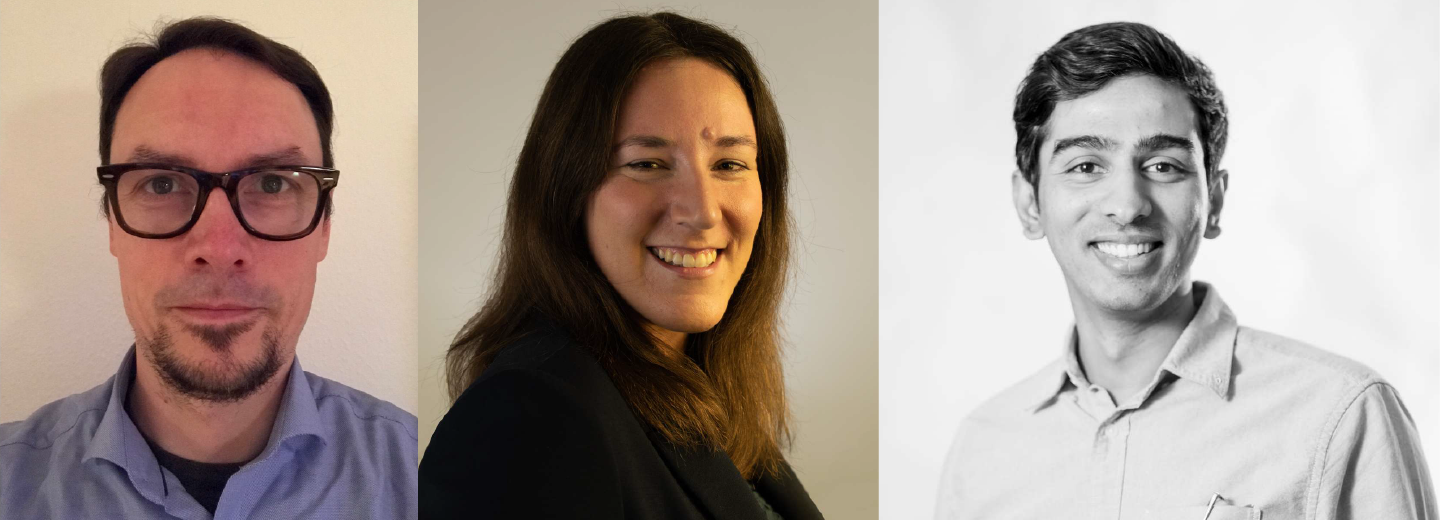
Three new Villum Young Investigators will establish their own scientific research groups
They each receive between DKK 9-10 million to establish new research groups over the next 5 years. Two researchers are from Department of Biology and one is from Department of Biochemistry & Molecular Biology.
The successful applicants are Associate Professor Lasse Jakobsen and Postdoc Beate Kraft from Department of Biology, and Assistant Professor Kedar Natarajan from Department of Biochemistry and Molecular Biology. They each receive between DKK 9-10 million to establish new research groups.
The Villum Young Investigator program wants to support young ambitious research talents. The program is one of the Villum Foundation's instruments within the technical and scientific field, where there is focus on attracting talented researchers to Danish universities. 21 researchers from all over the world receives the Villum Young Investigator grant this year and three of them are from the Science Faculty at SDU.
Jakobsen will be investigating how freely flying bats filter away unimportant information by controlling the emitted echolocation call and their echo reception. Filtering away irrelevant information is crucial to any sensory system because it frees up the brain to only process information essential to a given task. Bats are ideal animals to study such filtering because they broadcast their sensory perception directly through their echolocation calls. His grant is DKK 9.2 million and the project runs until June 2024.
Kraft will study the physiology, environmental distribution and ecological significance of a new oxygen production pathway. Almost every chemical reaction that can generate energy is exploited by microbes to sustain their growth and survival. This makes microbes the greatest chemists of our planet. Scientists are far from having discovered the almost endless microbial metabolic diversity. Her project is motivated by her new discovery of an oxygen-producing metabolic pathway that does not need light. This oxygen production pathway is performed by one of the most abundant and important groups of microbes in the environment. Kraft’s grant is DKK 10 million and the project runs over the next 5 years.
Natarajan will decode how cell cycle interplays and drives cell-fate decisions during embryonic development, especially at single-cell level. The ‘cell cycle’ is a fundamental process in all organisms and its dysregulation leads to cancers and developmental disorders. The cell cycle drives the development of a single-cell into diverse cell types and generates the 37 trillion cells in our body. The grant is DKK 10 million and runs for 5 years.
Marianne Holmer is head of department at Department of Biology and Dean ad interim at the Science Faculty. She says:
“Two of our young researchers in such diverse subjects as echolocation at bats and marine microbiology here get a unique opportunity to pursue their ideas for the next 5 years. These are fantastic grants, as the young researchers are supported for a longer period and the size of the grant gives the opportunity to build up their own research group. Both researchers are strongly affiliated with the Department of Biology and Lasse Jakobsen has just been employed as an Associate Professor in the Sound and Behavior Group and Beate Kraft has been a Postdoc for several years in Nordcee. The grants are thus of significant importance for the research in these groups but also extend to other groups and to the Technical Faculty. As for the Department of Biochemistry and Molecular Biology It's great to see that one of our D-IAS assistants has attracted a Villum Young Investigator project. Kedar Natarajan here gets a unique opportunity to build up his research at the department and at SDU. ”